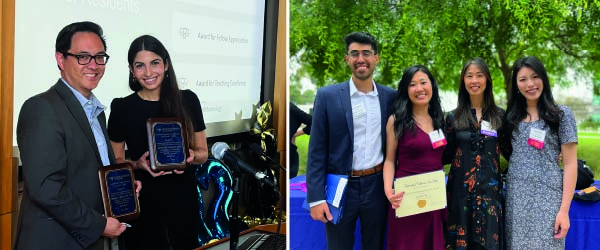

The Shiley Eye Institute and Viterbi Family Department of Ophthalmology is an international leader in eye and vision research. Residents have numerous opportunities to work with world-renowned faculty mentors.
The department consistently ranks among the top 5 departments in the country in terms of NIH funding per faculty. There are extensive research programs in multiple disciplines, including computational ophthalmology, biomedical informatics, data science, stem cell biology, gene editing, multi-omics analyses, bioengineering, and device development.

Residents have a dedicated 6-week research elective during the PGY3 year, but the overall research experience is longitudinal in nature. Residents identify mentors and potential projects during their PGY1 and PGY2 years and begin logistical work such as obtaining IRB protocols and other approvals. Residents can perform research throughout residency, including during the research elective in PGY3 as well as during their clinical elective time in PGY4 year, which offers flexibility for research activities.
Residents in the program typically have multiple presentations at national and international conferences as well as contributions to multiple peer-reviewed publications by the time they graduate. The program is very supportive of resident research activities and will make reasonable accommodations for conference attendance and provide funding support for these activities as well (see Resident Benefits page).

Excellence in research among UCSD residents has been recognized by selection to the Heed Fellows program, research awards, and attainment of faculty positions at leading academic institutions (see more details on the Alumni Highlights page).
In addition to the standard curriculum, there are also opportunities to engage in specialized research training opportunities, such as the GOAL program (which is focused on preventive medicine and public health) or the AI-READI research internship program (focused on AI and data science). Resident participation in these structured training programs are evaluated on a case-by-case basis.